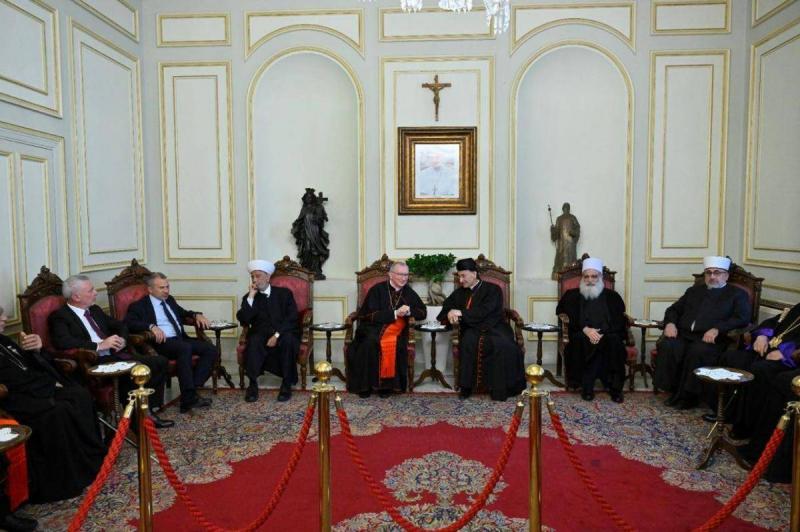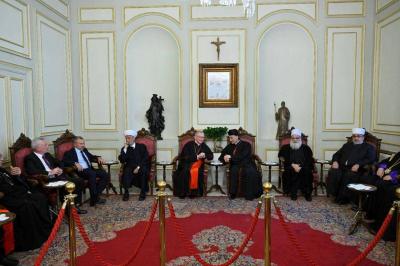The Shia boycott of the gathering that included the heads of sects in Bkerke represented a significant negative breach of a comprehensive endeavor under the auspices of the highest Vatican envoy to Lebanon, Secretary of State Cardinal Pietro Parolin. An even more negative and perhaps surprising development manifested in the organized attack, characterized by a divisive pattern reminiscent of ambushes, launched by symbols of the Shia community boycotting the meeting against a backdrop of sectarian sentiment. This resulted in a failure to mask or obscure the situation, as evidenced in "An-Nahar."
Suddenly, the event disrupted the internal scene by invoking a deliberate distortion of the Bkerke meeting and the Vatican envoy's visit to Lebanon, initiated by the boycott of the Deputy Head of the Higher Shiite Islamic Council, Sheikh Ali Khafif. This boycott was followed by an unprecedented crude attack led by the distinguished Jafari Mufti Sheikh Ahmad Qablan, known for his ongoing campaigns against Bkerke. This time, however, he crossed all red lines with inflammatory rhetoric, accusing the Maronite Patriarch of acting as a cover for Zionist massacres.
This development has begun to stir a climate of fabricated Christian-Shia tensions, coinciding with responses to Qablan and his attacks on Bkerke. Reports suggested that Hezbollah, which left its fingerprints in the messages from both Qablan and the Gathering of Muslim Scholars to Cardinal Parolin in the name of resistance, intends to formally announce its boycott of Bkerke, claiming that the Patriarch spoke in his recent sermon advocating for the implementation of international resolutions to stop terrorist actions from Lebanon. Bkerke clarified to relevant parties that the Patriarch did not intend to refer to Hezbollah's operations against Israel, yet the onslaught of insults and attacks continued unabated, according to "An-Nahar."




